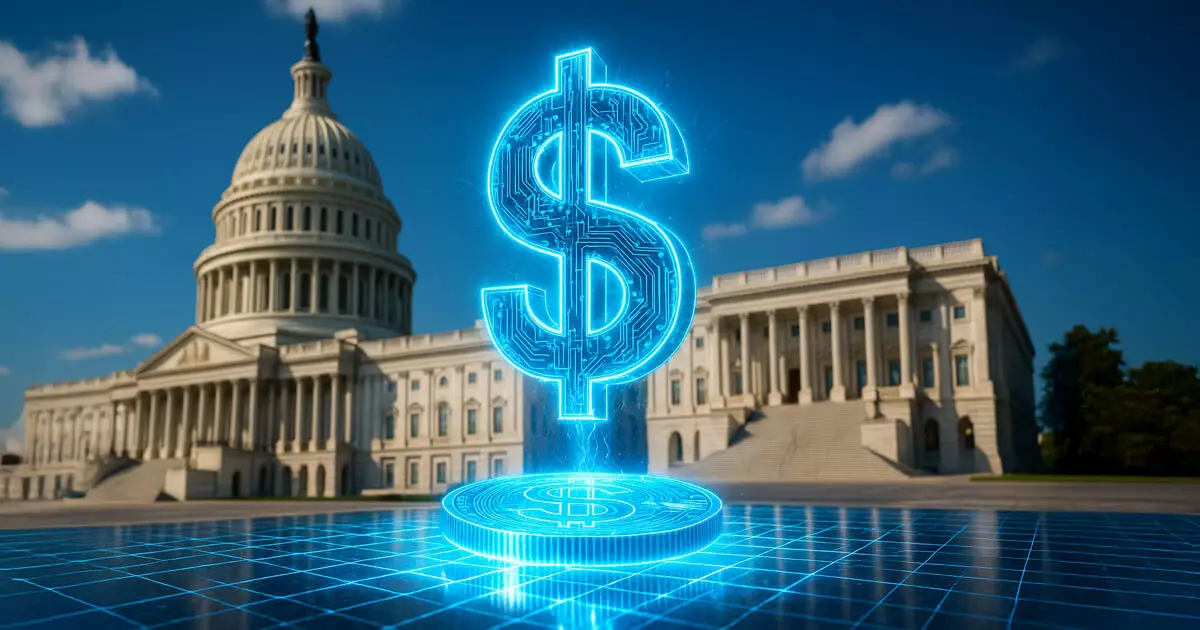As the digital financial landscape continues to evolve at breakneck speed, the Senate Republicans have taken a decisive step forward by advancing the GENIUS Act, a landmark piece of legislation designed to regulate stablecoins in the United States. Aiming for a vote before the Memorial Day recess, this act is more than just a regulatory framework—it represents a significant shift in how America approaches the rapidly expanding world of digital currencies. This is not merely legislative housekeeping; it is a strategic maneuver to ensure that the U.S. maintains its foothold in the global digital economy.
Ensuring Compliance Through Regulation
What makes this legislation compelling is its clear mandate for stablecoin issuers: to maintain a one-to-one backing with cash or government securities, enforced through stringent monthly attestations. This requirement not only mitigates risks associated with potential insolvency but also brings a level of accountability that has been sorely lacking in the crypto space. As we battle with diminishing trust in financial institutions, such thorough oversight is crucial for both consumers and the broader economy.
By positioning large issuers under the supervision of the Federal Reserve while allowing smaller entities to navigate state-level regulations, the GENIUS Act effectively strikes a balance between expansive oversight and entrepreneurial freedom. This dual approach demonstrates a commitment to innovation without sacrificing consumer protection—something that should resonate across party lines.
The Bipartisan Appeal of the Act
The GENIUS Act has garnered bipartisan support, evidenced by its passage through the Senate Banking Committee with an 18-6 vote. Key proponents like Senators Bill Hagerty, Cynthia Lummis, and Tim Scott have argued that this legislation is vital to preserving the U.S. dollar’s global dominance and providing clarity to the open, yet intimidating world of cryptocurrency. In Hagerty’s own words, the bill is essential for “[keeping] digital-asset innovation in America.” Such a sentiment captures the urgency of embracing technological change while simultaneously safeguarding American consumers from the inherent volatility of the crypto market.
However, there are notable dissenters who temper this optimism. Chief among them is Senator Elizabeth Warren, who warns that the GENIUS Act may pave the way for tech behemoths to issue their own stablecoins. A valid concern, indeed, as we tread carefully towards a future where corporate interests could dictate monetary policy outcomes. This division highlights the complexities of achieving a universally accepted framework.
Community Sentiments and Concerns
Echoing Warren’s skepticism, over 20 community banking organizations have expressed unease, arguing that the proposal could undermine traditional banking models and expose the financial system to unforeseen risks. The fear is not just about market competition; it’s about safeguarding the integrity of a system that has been built over decades. This clash between conventional banking and the innovative potential of stablecoins underscores a fundamental transformation in the economic order, one that requires careful scrutiny.
The delicate dance between innovation and tradition is fraught with challenges, and striking the right balance is vital to ensuring that financial stability is not compromised in the pursuit of progress.
The Road Ahead: Challenges and Opportunities
As Senate Republicans gear up for a critical vote, they face the immense task of unifying a fragmented Democratic caucus. Despite their majority status, they need the support of at least seven Democratic votes to clear the 60-vote hurdle—a formidable challenge given the internal divisions. Democrats like Kirsten Gillibrand and Mark Warner, who have been somewhat amenable to stablecoin regulations in the past, are now pivotal players whose decisions could influence the outcome.
Even if the GENIUS Act makes it through the Senate, significant discrepancies exist between it and the House’s version of the bill, which emphasizes more rigorous disclosure requirements. The potential for drawn-out negotiations points to a complicated road ahead, requiring legislators to navigate between innovation and regulatory caution.
A Broader Implication for Digital Currency
As we inch closer to a Senate vote, the implications of the GENIUS Act extend far beyond the immediate realm of stablecoin regulation. It is a litmus test for U.S. lawmakers on their ability to balance innovation with appropriate oversight in an era defined by rapid technological advancement. As society grapples with the future of money, the Senate’s forthcoming decision will reveal whether we can effectively harmonize progress with prudence—a delicate but essential equilibrium in today’s financial environment.
















Leave a Reply